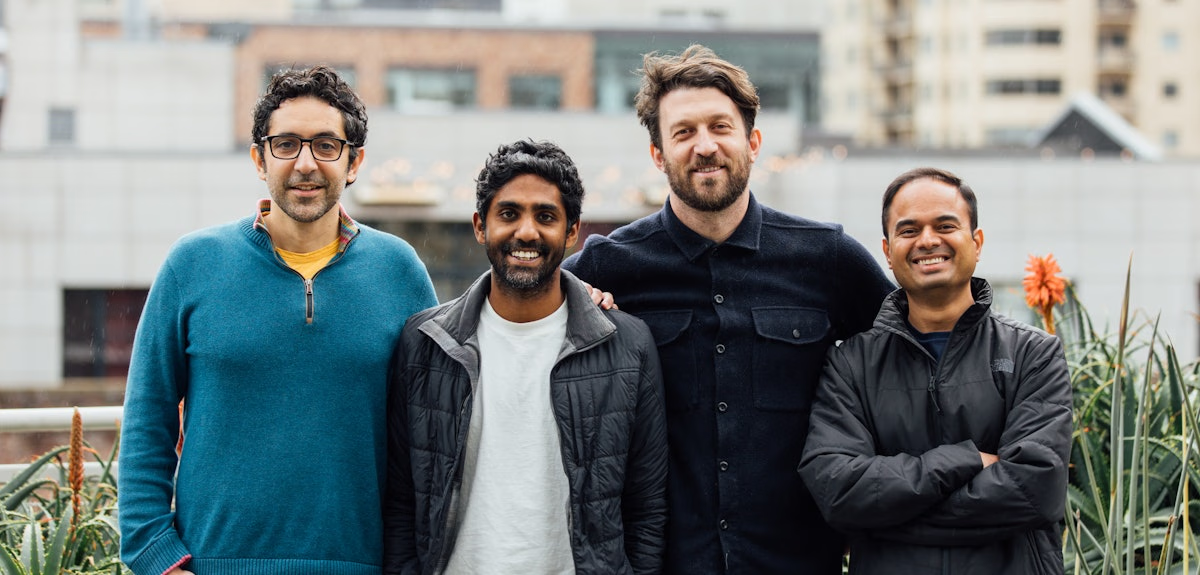
Operator Spotlight: Tyler Brown, Partly
We sat down with Tyler Brown—a Technical Solutions Engineer at Partly with a twist. With a background in space science and physics, he's a shining example of skills' and adaptability. From exploring galaxies to diving deep into automotive components, Tyler shows us the magic of connecting passions with solutions. Curious about how the startup universe can elevate your career? Ready for your next dynamic leap? Dive into The Lilypad today!
What was your background before joining Partly and what attracted you to Partly?
"My academic background is in physics and astronomy. During my time at university, I pursued my passion for space science. I aimed to blend academic research with practical industry experience, so I alternated between working on space science research and gaining industry experience in aerospace companies.
Over time, I realised that many industries, whether it's aerospace, automotive, or space science, heavily rely on data and share similar tools and skills. So, alongside my physics, computer science, and astronomy studies, I focused on developing cross-functional skills, particularly in program management and solutions management. I was most interested in bridging the gap between customer-facing roles and engineering-focused teams.
My journey eventually led me to Partly. I was seeking a change from the space science sector and was drawn to Partly's fascinating work with data. Much of what I had learned in aerospace and space science was directly transferable. Partly presented me with challenges involving problem-solving, understanding data at scale, and translating customer needs into engineering requirements. That's what initially piqued my interest."
What does Partly do?
"Partly's mission is to connect the world's parts, making it easy for sellers and installers to find the right automotive components. While this may sound simple, it's a complex challenge. The automotive industry has a deep history; the data involved is often in human-readable formats, such as manuals, photos, and handwritten notes. Converting this data into machine-friendly formats for building a data platform, aggregating data, and using data science and AI tools is a significant challenge.
We face the added complexity of dealing with a diverse range of sellers and regions within the automotive industry. Long-established processes have been fine-tuned over the years, and our goal is to disrupt these processes while still providing the necessary functionality and scalability. This is a common challenge in data companies across various industries.
Our aim is to provide quality and functionality while remaining flexible to the unique priorities of different sellers, whether they are original manufacturers, aftermarket sellers, specialty sellers, or eBay sellers. Creating data platforms and architecture that can adapt to their needs is one of our most significant challenges."
What is a Technical Solutions Engineer, and what are your goals in the business?
"My primary goal is to ensure we meet our customers where they are. They often have their own systems in place and the value that Partly can bring. It's about understanding what they bring to the table and what we can offer and then finding a way to make these elements work together to create a mutually beneficial solution.
In practical terms, this involves assessing the tools we have at Partly. We're always striving to stay at the cutting edge, improving existing tools and creating new ones based on our roadmap and customer feedback. We need to understand what systems our customers are using. Do they have inventory management software or e-commerce solutions? The key is to identify how we can integrate our systems with theirs. Do they only need a few specific tools from our toolbox to add value, or do we want to migrate them entirely to our platform and tools? This could mean migrating their data, setting up API links, or even building new integrations for their preferred software.
Ultimately, we aim to determine the best approach that maximises value for them. Sometimes, this process may involve shifting their perspective on data and their industry, especially if they are accustomed to certain ways of working. Scaling and enhancing their operations might require embracing new software and adjusting their workflow."
What do you think are the most important skills needed to work closely with customers?
"I believe my role involves a combination of two key aspects. Firstly, effective communication and understanding with my teammates are vital. I heavily rely on engineers, tech leads, and those directly involved in coding to keep me informed. It's crucial to have ongoing discussions about their current projects, the challenges they encounter, and how we can address these challenges when approached by customers. We have a team of exceptionally talented engineers, but sometimes, there's a gap between what they build and what customers find useful. My role is to bridge this gap by translating customer requests and user experiences into actionable engineering solutions and vice versa. I also work on conveying the engineering risks associated with different approaches in a way that end users can grasp and appreciate the complexity involved."

On a practical level, what does that look like?
"On a practical level, much of my time is dedicated to comprehending our tool documentation and occasionally pushing our tools to their limits, sometimes even breaking them. Working at Partly has its advantages in this regard, as we operate as a cohesive team with shared goals and good intentions.
My day-to-day tasks involve engaging in discussions with tech leads about the future of our products and what users can expect. Additionally, I delve into our data and customer offerings, assessing their alignment with our development efforts. I ask questions like, 'Is what we want to provide to customers currently feasible?' and 'Can it be achieved through self-service or does it require substantial engineering work?' There are instances when I collaborate with software engineers to brainstorm and prioritise requirements and features. Together, we outline the systems, technology stack, and integration points necessary to realise these goals."
What do you think partly does uniquely well compared to your experience at other companies?
"What sets Partly apart is our commitment to innovation and the inclusivity of our decision-making process. Despite having been here for only a few months, I've had the privilege of participating in significant discussions, including architecture and business decisions. This openness extends to all team members, whether you're new or have been here for a while. We value everyone's input and believe great ideas can come from anyone, regardless of tenure.
We also welcome interns with enthusiasm, as they bring fresh perspectives and expertise in newer tools. Their unique ideas often lead to innovations we hadn't considered before. Partly fosters a culture of receptiveness to feedback and ideas.
Another distinctive aspect of Partly is the absence of excessive bureaucracy. While we acknowledge the need for structure and stability, we provide a space where you can think outside the box, collaborate across teams, and contribute to various codebases. Cross-functional contributions are not only appreciated but celebrated."
Can you give an example of a time when you were able to provide a solution or fix a problem together as a group?
"Yes, I have a great example. We recently worked on a project that involved creating a demo app to showcase our automotive data capabilities. This project required collaboration among multiple teams, including backend, frontend, and automotive experts. It was fascinating to see different parts of the company come together to tackle various aspects of the project. Personally, I focused on data quality, understanding what mattered most to our customers. This experience helped us streamline our problem-solving approach, focusing on creating lasting solutions for all customers."
What are the challenging parts of working at a start-up?
"To begin, I must admit that I have very little knowledge about cars; I'm quite automotive illiterate and struggle even with basic tasks like changing my own oil. However, this has been a unique and enjoyable aspect of my role at Partly. Despite my lack of automotive expertise, I rely on and trust my teammates, who are always willing to assist me.
Working at a startup, in general, can be challenging because it often involves open-ended tasks. In a small team addressing new problems, there are few established guidelines. This can be perplexing as you wonder if your approach is correct. Defining your scope and contributions can be vague, and you might find yourself assisting other teams. The absence of clear instructions can be daunting.
The key to thriving in a startup environment is trusting your teammates, assuming the best intentions, and valuing feedback. Your colleagues are also likely navigating uncharted territory, making decisions without prior experience. Mistakes are part of the learning process, whether it's choosing the wrong software or tools. While such uncertainties can be challenging, they offer valuable opportunities for growth."
What’s the best thing about working at Partly?
"What I find fulfilling in startup environments is the freedom they offer. The open-ended nature of the work allows me to engage across various facets of the company, contributing to what we provide to customers and the world.
In traditional roles, it's often challenging to grasp the broader impact of your work. However, at startups like Partly, there's a clear sense of how our efforts affect communities and the world. This is particularly evident in the automotive industry, where our work enhances people's daily lives by simplifying car repairs.
I have a genuine curiosity about what's happening across the company. Understanding various teams' activities, customer feedback and decision-making processes empowers me to contribute effectively. At a startup, I'm not confined to a specific role; I can stretch beyond my job description, shaping how I contribute to the company's success. This level of control over my contributions is what I appreciate most."
Keen to find your next role in a startup? https://www.blackbird.vc/programs/lilypad and discover your next dream role.



.jpg)






